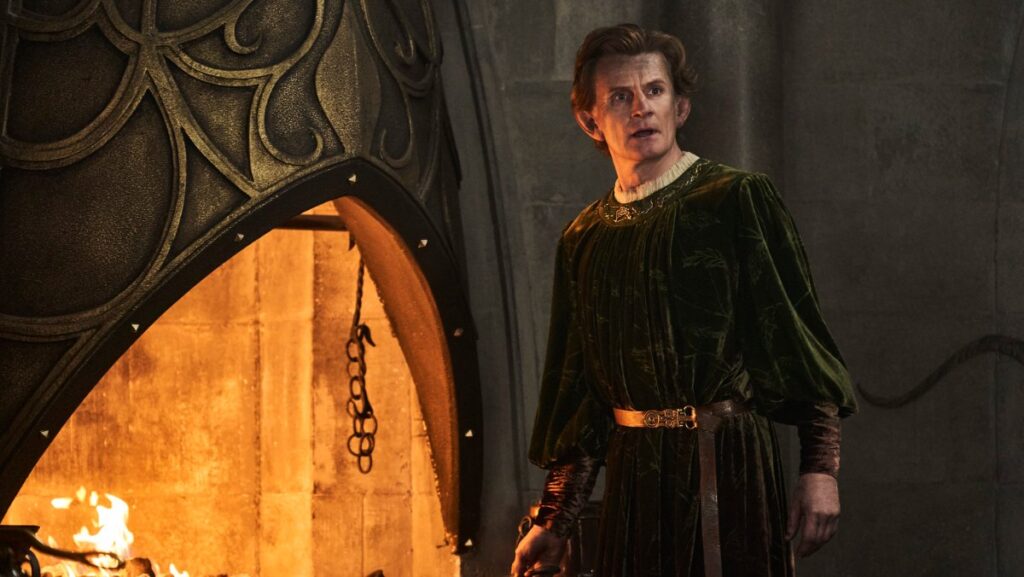Celebrimbor is one of the most notorious elves in the history of Middle-earth, but you wouldn’t know that from The Rings of Power‘s first season. The ruler of Eregion and master smith was only a minor character during the show’s inaugural year. But that’s all about to change during its second. Celebrimbor is about to etch his name in infamy by making some powerful rings. What’s it like going from a bit player to one of the show’s most important? And what elements of J.R.R. Tolkien’s lore explain why this noble elf will fall prey to Sauron’s deceptions? We asked the great Charles Edwards about all of that in more when we spoke to him after seeing the first three episodes of the new season.
Nerdist: Your showrunners told me they convinced you to join the series in season one by saying you’d be really important in season two. What exactly did they tell you about your role initially and how it would grow?
Edwards: Pretty much that. They said, “Okay, here’s the deal. You are in a little bit of season one. Then season two everything kicks off,” or something like that. “Then beyond that, who knows?” So they’re quite right. That’s exactly how they sold it to me.
In season one, you’re really just there to serve the story and make some rings. There’s not a lot going on with your character. Was that frustrating or did you have faith in what was going to happen and you’d really be that important?
Edwards: No, I knew it was coming, so I was perfectly happy with that setup. I enjoyed very much the scenes with Rob Aramayo and I enjoyed establishing this character that no one had seen before. But that was all it was, an establisher. The first scene I felt his season two story kind of creep into season one was when he meets Halbrand in the forge and they’re both alone. That’s essentially what season two is for us. And that’s where the spark of season two, the flavor of season two, started to creep in for me when the two of them met.
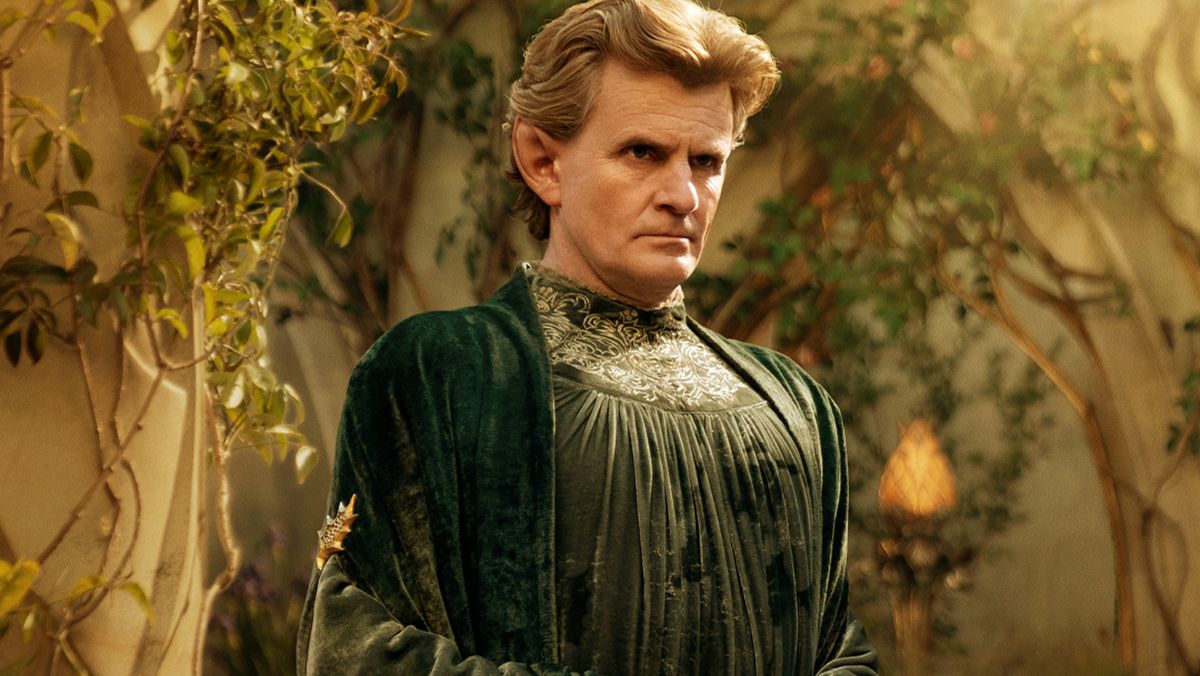
What did you do differently to prep for season two considering it’s not only it’s a bigger role, all of a sudden it’s a much more dynamic character?
Edwards: You just go where the story takes you and react accordingly. The joy of this for us was that, amazingly, we got to shoot all our scenes in season two in order. It was Charlie Vickers and I in the forge for weeks, every day, telling the story in order chronologically, which is unheard of. It was really, hugely satisfying work for us both. We both really had a great summer doing it.
You want to set (Celebrimbor) up so that he’s ready to receive what Annatar brings, as in he’s got to be at a particular stage of vulnerability or uncertainty to be a juicy bit of prey for the predator. And he’s happy to see (Halbrand) again because he thinks he’s forged some kind of a relationship with this guy. But I believe that in season one, when they first meet, that’s when Sauron first casts whatever spell it is that he casts on Celebrimbor, in that brief scene when he suggests using the mithral. Celebrimbor is very susceptible to flattery. Then, as you’ll see as the season progresses, it becomes more and more aggressively psychological and violent. The relationship is not a healthy one.
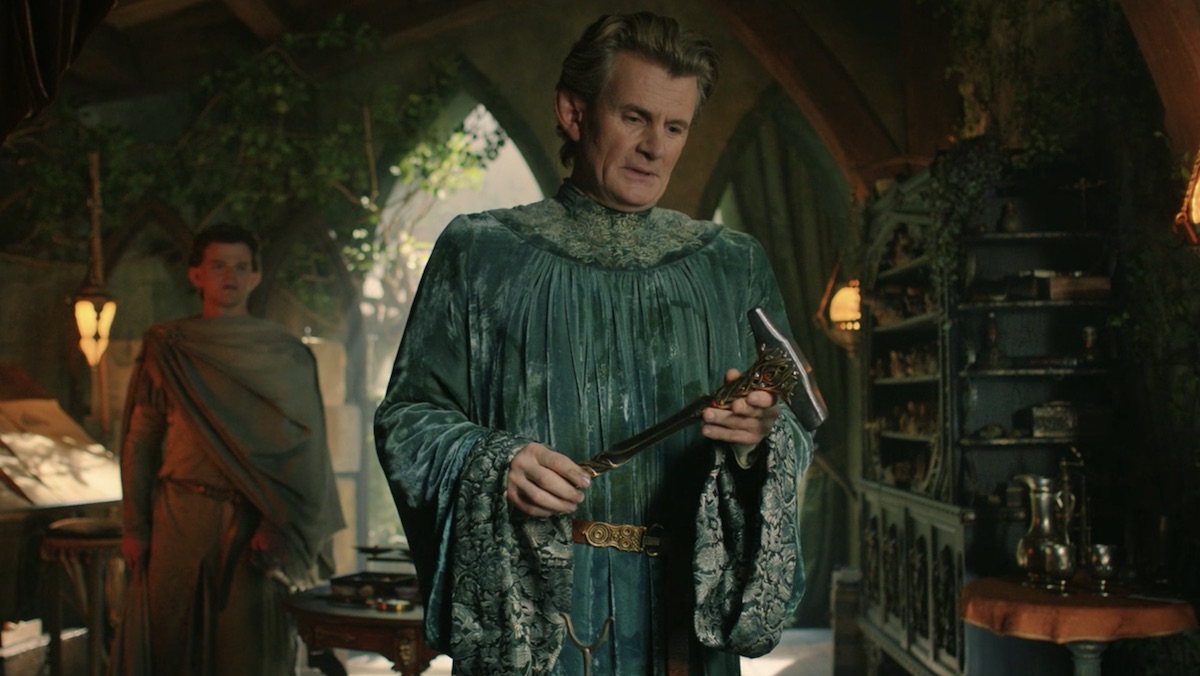
I want to get into that a little bit more, but I want to take a step back because I’m curious how much of Tolkien’s lore did you rely on to develop the character versus how much is coming from the scripts themselves?
Edwards: Celebrimbor is obviously a very vital part of Tolkien’s world, in terms of the rings and the ring making. But very little is written about him. What there is is either contradictory, or fascinatingly elusive and juicy, saying that he was an ambitious, vain person. He was desperate to emulate the success of his grandfather. All of those are just little diamonds.
That’s all we had. Two versions said he was from a different place. And one version says he’s in love with Galadriel, which we’re not following with this show. So there was a real concoction of possibilities.
The answer to your question is that it came from, obviously, (showrunners) J.D. and Patrick, their vision of him and my version of him. They kind of combined to take Celebrimbor down this path. His vulnerability is what’s interesting to me, brought on by the vanity and feeling he’s never quite made it, even though everyone else would say he had. There’s something in him. He’s kind of having an Elvish midlife crisis. Then the storyline for season two was presented to me by J.D. and I went, “Wow, that sounds great. That’s really good.”
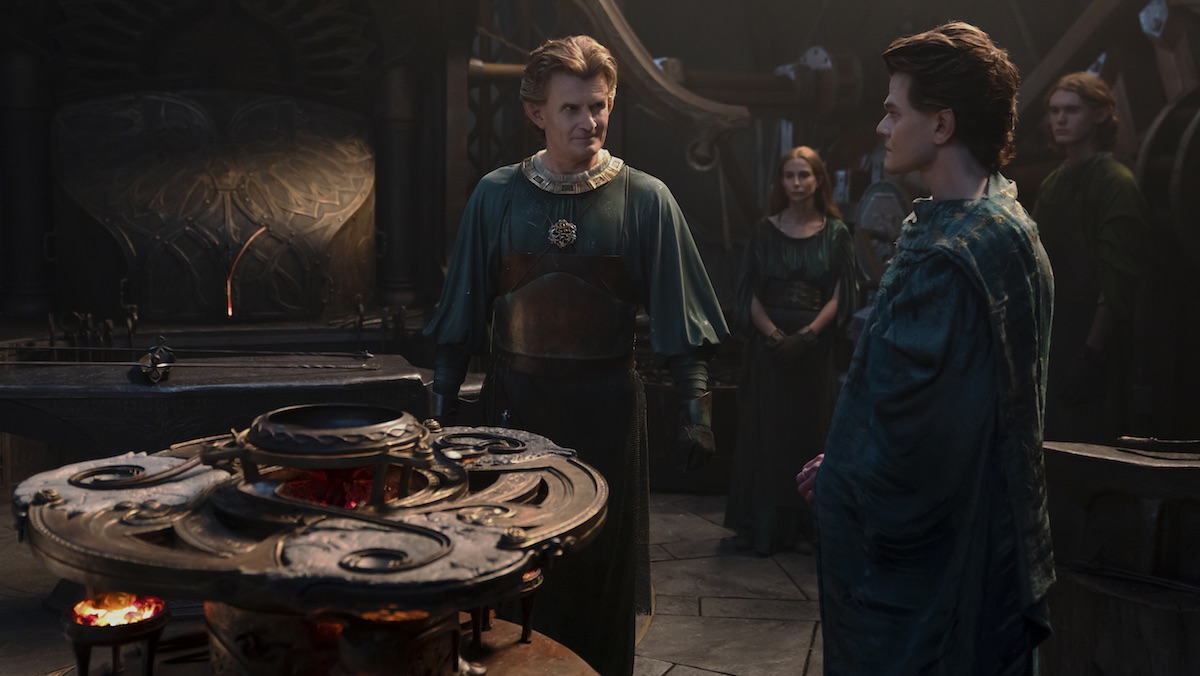
Like you said, there are different parts of the lore that say different things, and there’s some that says he’s not a prideful figure. He’s almost dwarf-likein his devotion to just making stuff.
Edwards: Tolkien says that too. That’s what’s so great about it. A bit of everything.
But when you see how Annatar persuades him, how much of Celebrimbor’s own downfall, and the horrors that are going to come for the next two ages of this world, come because he has pride? And how much of his story is the bad kind of pride versus the good kind of pride in his work?
Edwards: It’s all of those things. Tolkien gives us that too, in these contradictory versions. He says that about the dwarf-like obsession with craft. That’s great. I love that. And when I first got the role, I looked online because I didn’t know Celebrimbor and all the fan art images of this guy with a leather apron and a huge hammer with huge pecs. And I went, “Oooh, okay. Alright. That’s kind of Celebrimbor, is it?” But the dwarf-like obsession with craft suggests to me someone much more cerebral, much more bookish in a way. And the work he does is so detailed. It is all about filigree and delicacy. That’s the kind of direction I went with him.
Then you have a comment in one of the books which I searched for, this comment about his relationship with pride. I was jubilant when I found it. It’s just a sentence, but it’s there. I seized on that because that’s a wonderful combination. Someone who never felt like he quite achieved, someone with a chip on his shoulder. There are many, many versions that are possible within what we’ve been given. I hope I’ve done some of it justice.
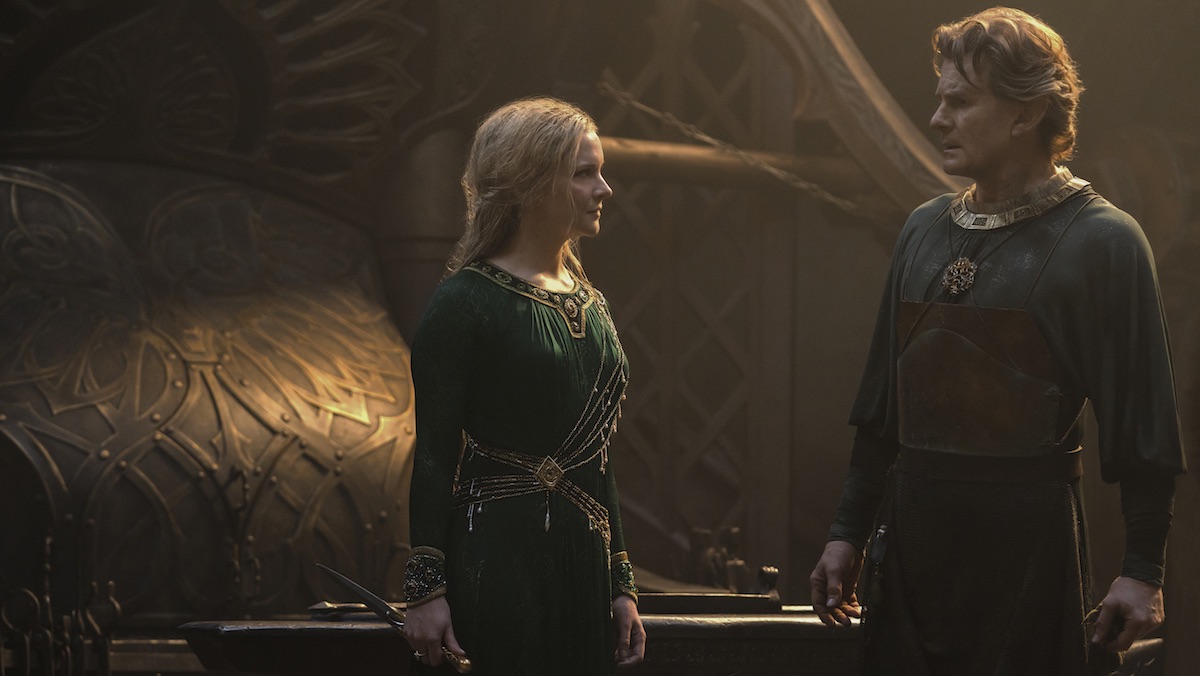
You might’ve already kind of answered this, but what do you think is the biggest reason he lets Halbrand back in the first place after Galadriel already warned him not trust this guy.
Edwards: She has told him not to let him in, but he doesn’t know why. And at the point we find him at the beginning of season two, he feels ignored. He feels let down that he hasn’t heard any news how the three rings have done. He feels slightly abandoned because all the missives and letters coming from the king have been intercepted. So he’s going, “What the hell’s going on here?”
Then Halbrand turns up, and as I mentioned, there is something about Halbrand that already has his hook in Celebrimbor in season one. And when Halbrand turns up, there’s something maybe quite titillating about disobeying Galadriel because he’s pissed off with everyone. Then later in the season, he says, “No, no, it’s my kingdom. I’m going to do what the hell I want.” There’s a bit of petulance there, going, “No, I’m going to do this.” There’s a bit of that. He feels like he’s being forgotten.
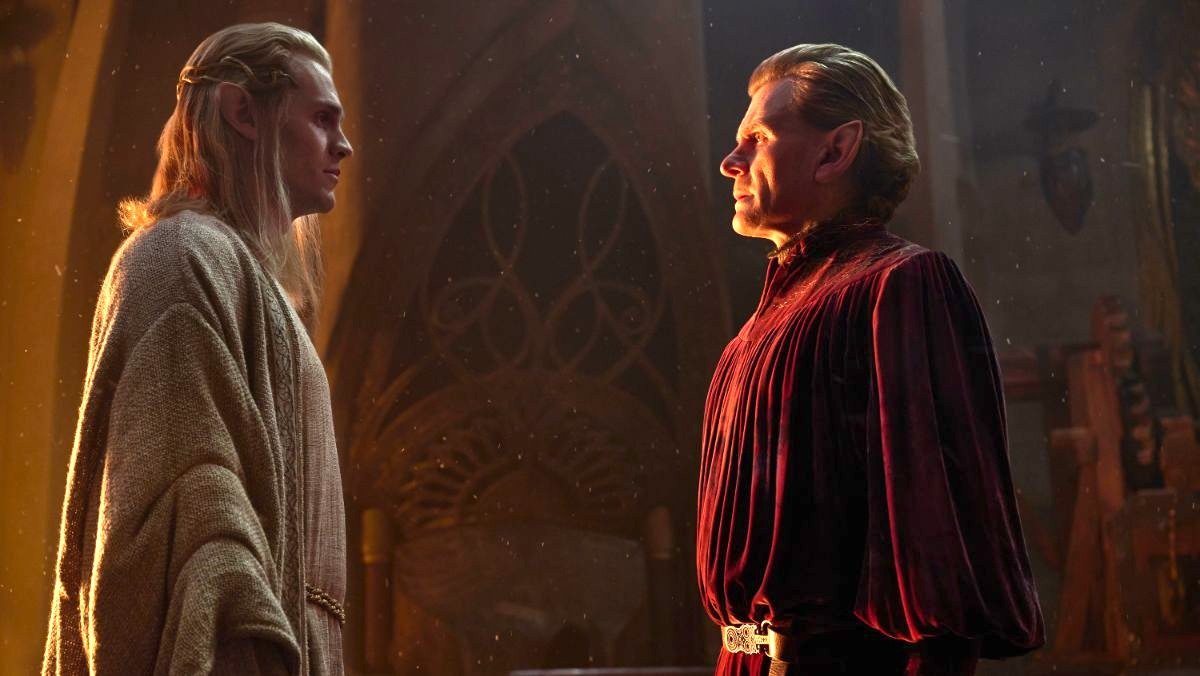
Season one really establishes just how conniving and manipulative Sauron is and how easily he can get someone to trust him. But is there any part of Celebrimbor that doubts Annatar’s story? Or is he really that convincing?
Edwards: When Annatar presents himself to Celebrimbor as the messenger of the Valar at that moment, he goes, “Wow, this is extraterrestrial. This is extraordinary.” As anyone would in that situation. Later, as you’ll see, he will start to question it.
But right now what’s so interesting about it is that he does present himself in that way to Celebrimbor. Then they start to work together and they bicker like workmates do. It becomes this almost domestic relationship. They’re spending all the time in the forge, and the psychological battle that starts to occur between them is a very domestic setup, the games that start to get played between them. It’s so satisfying to play against the backdrop of this big fantasy show. It’s suddenly very insular and interesting and gripping, in a very psychological way. Later he will start to question, he will start to doubt.
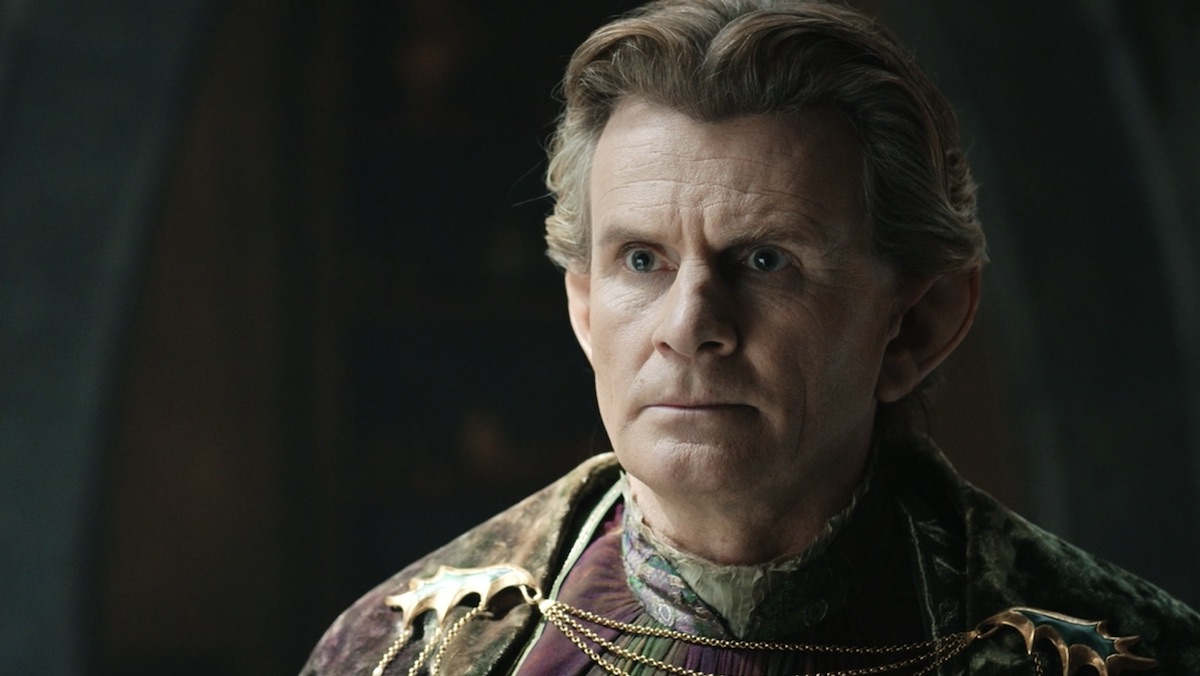
We’re only discussing the first three episodes, but you’ve hinted at this a little bit. What can you tell us, without spoiling anything, that you’re really excited for fans to see with you and Sauron this year?
Edwards: The way that Celebrimbor fights back is great. There’s an episode towards the end, the way Celebrimbor starts to see what has been done to him.
You’ve clearly looked at Tolkien’s writing closely and saw how there’s both depth and freedom to craft this character. Considering we know Celebrimbor’s ultimate fate, and we know how important he is to what’s going to be two very destructive periods, is there any part of you that sort of tries to reverse engineer how he will get there? Or do you just try to stay in the present moment of his life?
Edwards: The latter. For those who aren’t aware of what might become of him, I wouldn’t want to hint at anything.
And because all this happens so fast and so intensely in our version, he’s caught at every moment. He’s just kept on the hook by Annatar, so he just has to live in the moment. But in terms of his tragedy, that is sort of self-evident later. I haven’t tried to preempt him as a tragic hero or anything like that. Hopefully he might be that anyway.
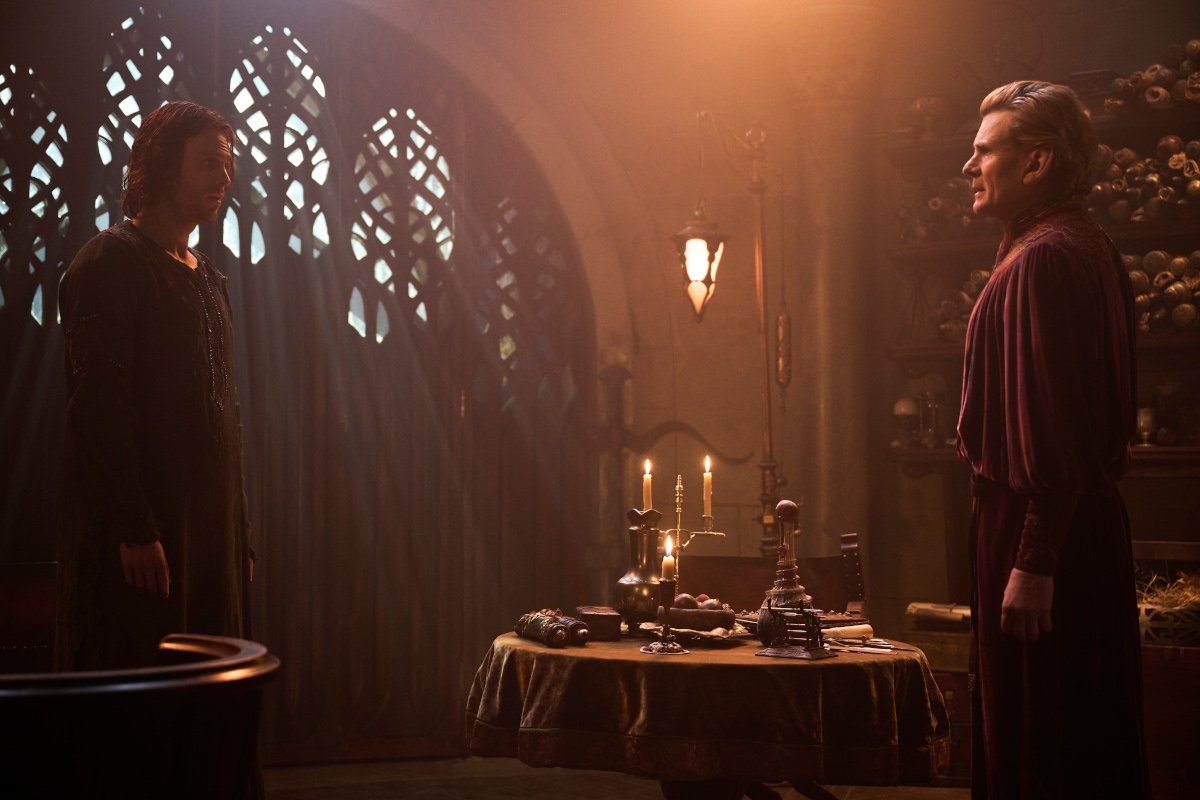
My last question is not mine. I spoke to Charlie Vickers yesterday. It’s clear he reveres you.
Edwards: Likewise.
I asked him what question should I ask you? He said I wasn’t allowed to ask him this, but he wants to know if you had a ring and it could give you some kind of power, what power would you want?
Edwards: :laughs: What would my answer to that be…
…Probably to live forever.
Really?
Edwards: Probably.
Oh, so you really are an elf. You don’t want The Gift.
Edwards: No, but with a little sub clause saying you could be reborn every, I dunno, 80 years. Not turn into a child again, but be reborn in your current form. And you don’t age, of course, you stay at about forty five. Forty maybe. But you get reborn not knowing everything that you knew when you last died, if you see what I mean?
That is such an elf answer. Thank you so much. This was really great.
Edwards: You’re very welcome.

